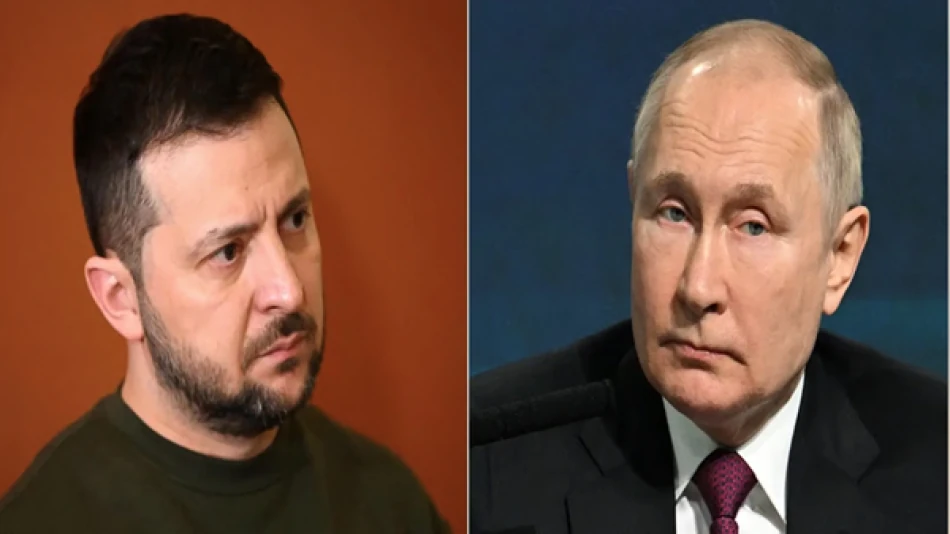
Kremlin Hints at Potential Putin-Zelenskyy Meeting, Sparking Diplomatic Intrigue
Russia Signals Willingness for Putin-Zelensky Summit, But Sets Preconditions
Russia has indicated it remains open to direct talks between President Vladimir Putin and Ukrainian President Volodymyr Zelensky, but only after extensive preliminary negotiations establish agreed-upon terms. The statement comes as President Donald Trump pushes for rapid diplomatic progress, suggesting such a summit could occur within two weeks.
Moscow's Calculated Response to Western Pressure
Kremlin spokesperson Dmitri Peskov told Russian news agencies Friday that while Russia doesn't rule out a Putin-Zelensky meeting aimed at achieving peace, any summit must follow pre-agreed conditions. "Putin believes that any high-level meeting must be well-prepared and should confirm results achieved at the expert level," Peskov stated.
This measured response reveals Russia's strategy of appearing diplomatically engaged while maintaining control over the negotiation process. By insisting on extensive groundwork, Moscow effectively sets the timeline and agenda for any potential breakthrough.
Trump's Ambitious Timeline Meets Reality
The Russian statement directly responds to contrasting signals from Western leaders. During a White House meeting Monday with Zelensky, German Chancellor Friedrich Merz, and other European leaders, Trump suggested a Putin-Zelensky summit could happen within two weeks. However, Merz publicly stated Thursday that he doesn't currently expect such talks to materialize.
This disconnect highlights the complex diplomatic dynamics at play. Trump's push for quick results reflects his administration's desire to claim early foreign policy victories, while European allies remain skeptical about Russia's genuine commitment to meaningful negotiations.
Historical Context: Russia's Negotiation Playbook
Russia's approach mirrors its diplomatic strategy throughout the conflict. The Kremlin has consistently expressed theoretical willingness to negotiate while setting conditions that effectively maintain its position. Previous rounds of talks, including early 2022 negotiations in Belarus and Turkey, collapsed when Russia demanded Ukraine accept territorial concessions and neutrality guarantees.
Peskov's emphasis on "expert-level" preparatory work suggests Russia wants detailed preliminary agreements before Putin risks the political capital of a face-to-face meeting with Zelensky. This approach allows Moscow to probe Western and Ukrainian red lines without committing to substantive compromises.
Strategic Implications for All Parties
For Ukraine, any summit represents both opportunity and risk. Direct talks could potentially accelerate a resolution, but they also risk legitimizing Russian territorial gains or creating pressure for premature concessions. Zelensky's participation in Trump's proposed timeline suggests Ukraine recognizes the importance of maintaining U.S. support, even if negotiations prove fruitless.
Russia's conditional acceptance serves multiple purposes: it positions Moscow as reasonable and peace-seeking for international audiences while buying time to consolidate military gains. The emphasis on preparation also allows Russia to withdraw from talks if conditions don't meet its objectives.
For the Trump administration, pushing for rapid diplomatic engagement fulfills campaign promises to end the conflict quickly. However, the gap between Trump's optimistic timeline and the complex realities on the ground may test the new president's negotiating approach and patience with traditional diplomatic processes.
Most Viewed News

 Layla Al Mansoori
Layla Al Mansoori






